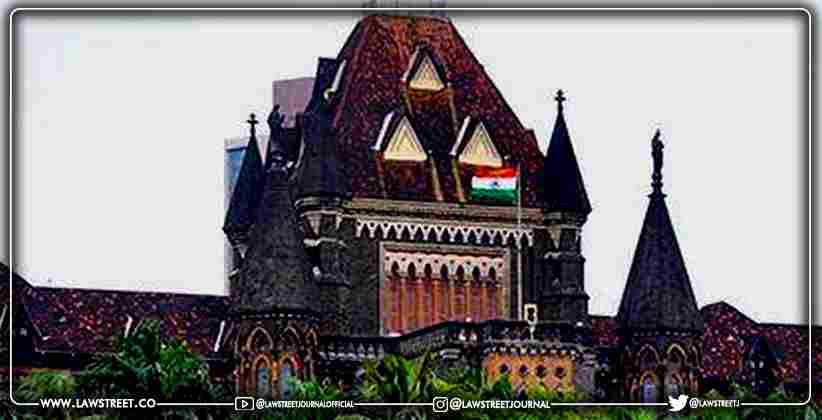In our democracy, the freedom to express oneself is a respected and valued right. A division bench of Justices SS Shinde and MS Karnik noted that just because the Petitioner's point of view is severe or harsh does not make it hate speech because it is simply voicing a certain point of view.
Observing that an extreme or harsh point of view would not amount to hate speech, the Bombay High Court quashed an FIR against Navi Mumbai resident Sunaina Holey.
Holey was charged under section 153A of the Indian Penal Code (promoting enmity between various communities on the basis of religion) for uploading a video with a statement on migrant workers gathered outside Bandra Masjid in Mumbai on April 14, 2020, at the height of the nationwide lockdown.
A guy yelled in the video that the Covid - 19 pandemic was not caused by God, but by India's prime minister. Holey's purpose in reposting the video with a statement, according to the bench, was solely to criticise the man's point of view. Assuming that the said tweet is an unreasonable viewpoint articulated in response to a member of the audience who blamed India's Prime Minister for the outbreak of the pandemic, the said tweet must always be judged from the perspective of what a strong-willed, rational, or sensible individual might do.
By no stretch of the imagination, it can be said that the said tweet generated animosity or enmity between the two classes of societies if the test of a powerful or wise individual judging the contents of the said tweet is applied. It is difficult to conclude from the contents of the said tweet that the Petitioner has mens rea to commit the alleged crime under section 153A of the Indian Penal Code.
The bench went on to say that neither the maker of the video nor the individual who blamed the Prime Minister had been charged with a crime, and that there had been no subsequent disruption. Although the State's desire to maintain control of the situation was "justified," the bench found that filing a FIR against Holey based on the fear that it might contribute to the promotion of hate or enmity between separate communities on the basis of faith, or that she had committed an act that would jeopardise the preservation of religious unity, was too far-fetched and distant.
"If we judge the tweet in question from what a rational and strong-minded individual might think of it, there is no doubt in our minds that it is just voicing a negative point of view. The Respondent's reaction to the tweet is hypersensitive and overly vigilant, as if attempting to detect risk in the Petitioner's aggressive viewpoint."
The bench cited a list of judgements Imp Judgements relied on
- A citizen or even an influential person is under no obligation to avoid a controversial or sensitive topic. Even expressing an extreme opinion in a given case does not amount to hate speech. (Amish Devgan's case)
- It is not an absolute proposition that one must wait for the investigation to be completed before quashing FIR under Section 482 of Cr.PC as the same would depend upon the facts and circumstances of each case. ( Manzar Sayyed Khan & Bhajanlal's case.)
- The intention of the accused must be judged on the basis of the words used by the accused along with surrounding circumstances. (Manzar Sayyed Khan's case)
- The statement in question on the basis of which the FIR has been registered against the accused must be judged on the basis of what reasonable and strong-minded persons will think of the statement, and not on the basis of the views of hypersensitive persons who scent danger in every hostile point of view. (Manzar Sayyed Khan's case)
- In order to constitute an offence under Section 153A of the IPC, two communities must be involved. Merely inciting the feeling of one community or group without any reference to any other community or group cannot attract either Section 153A. (Refer Bilal Ahmed Kaloo's case)
- The intention to cause disorder or incite people to violence is the sine qua non of the offence under Section 153A of IPC and prosecution has to prove prima facie the existence of mens rea on the part of the accused. (Balwant Singh's case)
Tweets against Thackareys:
Apart from the current FIR, Holey has been charged with defamation under sections 505(2) and 500 of the Indian Penal Code in two other FIRs relating to various tweets she has made. She was arrested in August of last year and later released on bail in connection with a cybercrime case filed by the Bandra Kurla Complex police department. Her tweets were aimed at Uddhav Thackeray, the Chief Minister, and Aaditya Thackeray, the State Cabinet Minister.
Appearances
Dr. Abhinav Chandrachud a/w advocates Chandansingh Shekhawat, Yashowardhan Deshmukh, Sailee Dhayalkar instructed by Farishta Menon for Holey
Senior Advocate M.S. Mohite and advocate Vivek Babar, and APP Jayesh Yagnik for the State. [Sunaina Holey vs State of Maharashtra]








